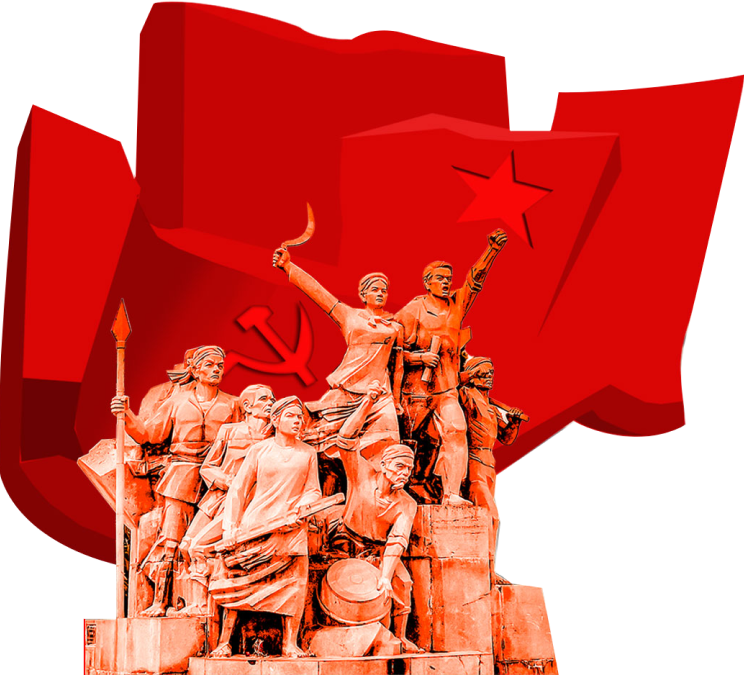General Chu Huy Man - a loyal, exemplary communist, a general devoted to the country and the people
Growing up from the height of the Nghe Tinh Soviet movement in 1930-1931, General Chu Huy Man was a shining example of a loyal and exemplary communist, always devoted and sacrificed for the country and the great cause of the people.
"Being dedicated, life is glorious and brilliant,
Vthe country and the great cause of the people
Green hair steps forward, golden steel shines
My silver hair returns to shine in the spring sky.(1)
These are the poems of General Chu Huy Man - former member of the Politburo, former Vice Chairman of the State Council, former Director of the General Political Department, an excellent student of President Ho Chi Minh, who often read them every time he met his comrades in arms.
The General's entire life and career will forever be a shining example of a loyal and exemplary communist, always devoted and sacrificing for the country and the great cause of the people.
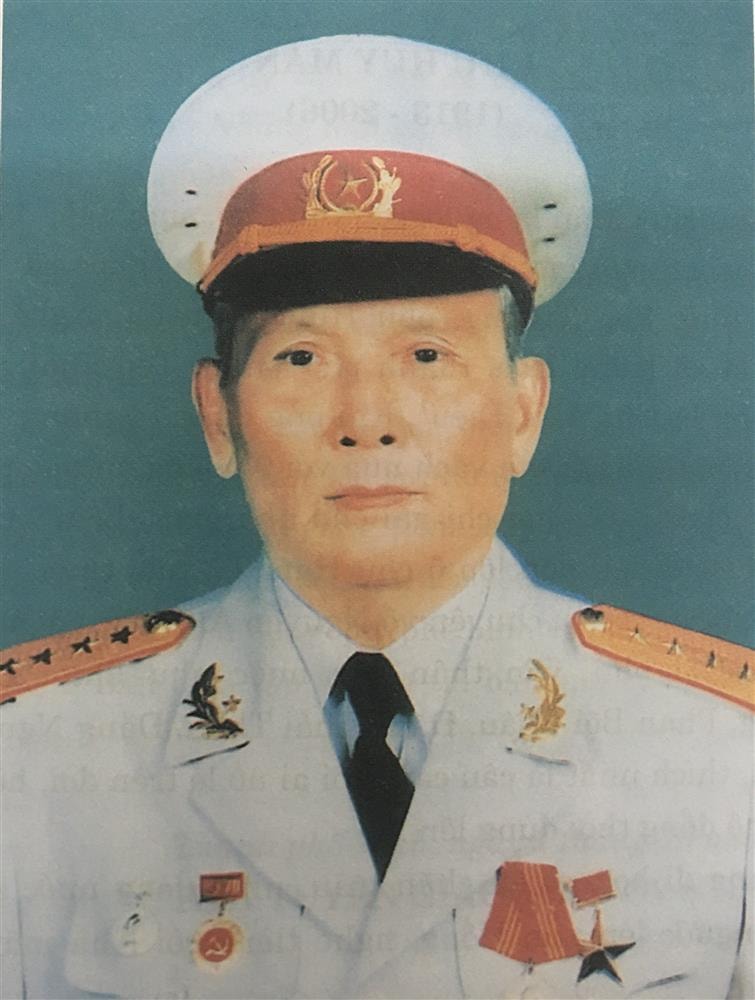
General Chu Huy Man (birth name Chu Van Dieu, aliases: Vu Chan, Le The My, Tran Thanh Lac, Ho Thanh Chau, Hai Manh, Thao Chan) was born and raised in a poor farming family with 8 children in Yen Luu commune, Yen Truong canton, Hung Nguyen district (now Hung Hoa commune, Vinh city, Nghe An province). Being raised in a family, a lineage with a tradition of patriotism and studiousness; growing up on a land with a rich history and culture, those sources contributed to the desire and ambition to make a revolution to escape the shackles of slavery of the patriotic young man Chu Van Dieu.
In 1929, facing the difficult life of his family, witnessing the oppression and exploitation of the colonial and feudal governments, and the strong struggles of the people of Nghe Tinh, although only 16 years old, Chu Van Dieu was enlightened and participated in revolutionary activities.
In the spring of 1930, the Communist Party of Vietnam was born, leading the people of the whole country to create a revolutionary movement of 1930-1931 with the peak of the Nghe Tinh Soviet. When the wave of people's struggle broke out, spreading to many localities in the two provinces of Nghe An and Ha Tinh, the Nghe Tinh Soviet government was established, bringing a new life to the people. In Yen Luu village, under the direction of Vinh Provincial Party Committee, the Party Cell of mass organizations such as the Red Peasant Association, Red Self-Defense Force... was established, Chu Van Dieu was appointed as Deputy Captain of the Yen Luu Red Self-Defense Force.
Together with the members of the Self-Defense Team, Chu Van Dieu enthusiastically practiced day and night with primitive homemade weapons such as sticks, spears and enthusiastically participated in the struggles, leaving his mark with the suppression of many henchmen and reactionaries in the area.
After a period of active activities, Chu Van Dieu was honored to be admitted into the Party with an oath before the red flag of hammer and sickle: "I, Chu Van Dieu, swear before the Party flag to fight for the Party and the revolution for the rest of my life. If I am captured by the enemy, no matter how much torture I am subjected to, I will never give up, even if I have to endure imprisonment, I will never be discouraged, and will live and die with no fear" (2).
That sacred oath followed him throughout his life and became the purpose of his actions, helping communist soldier Chu Van Dieu mature in the storm of revolution.
In early 1931, the French colonialists mobilized forces to carry out white terror in order to suppress the revolutionary movement and Party bases in Nghe Tinh. Like many other places in their homeland of Nghe An, Chu Van Dieu and his comrades were arrested, beaten, and exiled to the wild forests and poisonous waters to do hard labor. They forced everyone to admit that they had become communists and sign a paper asking for “surrender”. Chu Van Dieu was determined not to admit it or sign the “surrender” paper, so they were forced to release him but sent people to monitor him.
Faced with such a difficult situation, the urgent task at that time was to consolidate the Party organization and rebuild the revolutionary movement. Realizing the importance of the task, in 1933, comrade Chu Van Dieu assumed the position of Secretary of the Yen Luu Party Cell. Under his leadership, the revolutionary movement in Yen Luu had new developments. The cell actively operated and took measures to change the direction of the struggle to demand practical benefits.
To prevent and prohibit Chu Van Dieu's activities, the French colonialists put him on the list of suspected communists. During the period from 1935 to 1939, every year on May 1, March 8, July 14, and September 12, Chu Van Dieu had to present himself and was detained all day.
In May 1935, Chu Van Dieu changed his name to Chu Huy Man. In 1936, he held the position of Secretary of the District Party Committee of Hung Nguyen District, Nghe An Province.
From 1937 to 1940, he was imprisoned many times by the French colonialists in Vinh Prison. In 1940, Chu Huy Man was imprisoned in Dac Glei and then Dac To, Kon Tum. In the imperialist prison, the enemy used all kinds of tricks, both seducing and brutally beating him, but could not subdue the iron will of the communist soldier.
In 1943, the organization created conditions for him to successfully escape from prison, and after a while, he was able to contact the Quang Nam Provincial Party Organization. During his time in Quang Nam, he was active and continuous, actively participating in the Provincial Viet Minh Front Committee and was assigned to be Deputy Secretary of the Quang Nam Provincial Party Committee.
In August 1945, comrade Chu Huy Man, together with key comrades in the provincial Viet Minh Front and the Quang Nam Provincial Party Committee, led the people of the entire province to successfully rise up and seize power. He made great contributions in mobilizing and gathering the masses, building and developing local revolutionary forces, and building and protecting the revolutionary government right from the early days of the establishment of the young people's democratic state.
After gaining power in 1945, he joined the army and held the following positions: Political Commissar of Quang Nam Provincial Military Command; then Chairman of the Military Commission of 4 Central provinces, Head of the Party Inspection Committee, Military Region Committee member of Viet Bac Region.
From 1947 to 1949, he was the Regiment Commander and Secretary of the Regiment Committee of Regiment 72, Regiment 74 Cao Bang and Regiment 174 Cao - Bac - Lang. Comrade Chu Huy Man was assigned to be the Political Commissar and Secretary of the Regiment Party Committee. Under the command of comrade Chu Huy Man, Regiment 174 organized a large-scale ambush on Highway 4, paralyzing and cutting off the enemy's strategic transportation route from the lowlands to Viet Bac, killing nearly 500 enemies, capturing 60, wounding 300, and destroying 53 tanks. On January 30, 1950, comrade Chu Huy Man again commanded Regiment 174 to organize a large-scale battle, killing nearly 5,000 remnants of the Chiang army, forcing about 4,000 to surrender.
In August 1950, the Party Central Committee and Uncle Ho decided to launch the Border Campaign. The forces participating in the campaign included Comrade Chu Huy Man's Regiment 174, Division 308, Battalions 209, 426, 428, 888 and some local troops from Cao Bang and Lang Son provinces, along with 100,000 laborers. After the successful Border Campaign, Regiment 174 returned to station near Lang Son town. Political Commissar Chu Huy Man received orders to go to the Ministry's office to receive a new assignment. When arriving at the Ministry's office in Hoa An, Cao Bang, Comrade Chu Huy Man went to work and reported to General Vo Nguyen Giap. After understanding the situation, General Vo Nguyen Giap told Comrade Chu Huy Man to go meet Uncle Ho. That was the first time General Chu Huy Man met Uncle Ho in person.
In May 1951, Division 316 was established. Comrade Chu Huy Man was appointed Deputy Political Commissar, then Political Commissar, Party Secretary of Division 316. Division 316, commanded by Comrade Chu Huy Man, with pride in the feats of the 174th Regiment as the mainstay in the Border campaign, confidently and bravely participated in the historic Dien Bien Phu campaign and was assigned the task of attacking key positions such as hills C1, C2 and A1, contributing decisively to the destruction of the Dien Bien Phu stronghold complex, creating a victory that shook the world.
In August 1954, comrade Chu Huy Man was appointed by the Party and State as the head of the delegation and Party Secretary of the Vietnamese Military Expert Delegation in Laos. During nearly 4 years working in Laos, he and the expert delegation helped Laos build its armed forces and revolutionary bases, creating conditions for the Lao revolutionary forces to develop in line with the movement of the three Indochinese countries. He was one of the people who made great contributions to building the special solidarity and friendship between Vietnam and Laos, the loyal relationship of "biting a grain of salt in half, breaking a piece of vegetable in half" between the armies and peoples of Vietnam and Laos. He was trusted and evaluated by his friends as one of the "Excellent Advisors" of the Government, Army and People of the Lao ethnic groups.
In 1957, he held the position of Political Commissar and Secretary of the Party Committee of Military Region 4; in 1958, he was Political Commissar of the Northwest Military Region and Secretary of the Northwest Regional Party Committee.
In May 1961, he held the position of Commander, Political Commissar and Party Secretary of Military Region 4.
In September 1963, he was assigned by the Party Central Committee to the battlefield of Military Region 5, holding the following positions: Head of the Central Military Party Committee's inspection delegation to study the work of Military Region 5; Deputy Secretary of the Regional Party Committee, Secretary of the Regional Party Committee; Political Commissar, Secretary of the Military Region Party Committee of Region 5.
Through the fierce years in Military Region 5, with his talent and intelligence, and with great determination, comrade Chu Huy Man and the collective leadership of the Regional Party Committee commanded the army and people to achieve many resounding victories such as the battles of Ba Gia, Nui Thanh, and Van Tuong.
He was a creative leader and commander of troops, the soul of the Tay Nguyen troops and Military Region 5. With a close and brave command style and contributions to military art, he led the famous Pleime campaign against the Americans on the entire Southern battlefield in 1965.
In 1966, he commanded the Sa Thay campaign with many unique and good strategies to lure the enemy into a trap step by step to destroy them from the Poko River to the Sa Thay River, causing their formidable units to be defeated one by one. That strategy was also used by the Tay Nguyen troops, defeating the US 173rd Airborne Brigade and a part of the US Airborne Division.
In June 1967, comrade Chu Huy Man was called to Hanoi by the Central Committee, honored to meet Uncle Ho again and have dinner with him. Commander Chu Huy Man's alias Hai Manh also originated from this meeting. During the conversation, Uncle Ho asked about comrade Chu Huy Man's assigned tasks. After hearing the comrade report that he was temporarily holding both military and political duties: Commander, Political Commissar, and Party Secretary of the B3 Front - Tay Nguyen, Uncle Ho smiled and encouraged him: "You should shoulder both duties to be strong". Since then, the comrade changed his alias from Ho Thanh Chau to Hai Manh.
During more than 10 years of commanding the troops of Military Region 5 from 1964 to the General Offensive and Uprising in 1975, comrade Chu Huy Man was a reliable support for the army and people of Region 5 during the fiercest but also most glorious years of war. He contributed to the development of military art, especially the art of combined campaigns consisting of two forces: political (political struggle, military agitation), military (three types of troops) which was the peak of the people's war in Region 5 (Winter-Spring 1972) in North Binh Dinh and the general offensive and uprising in the spring of 1975 in Region 5). During his time working in Military Region 5, comrade Chu Huy Man was affectionately called by everyone as "Hai Manh".
At the 4th National Congress of the Party in 1976, comrade Chu Huy Man was elected to the Central Executive Committee and the Central Committee elected him as a member of the Politburo and appointed him as Deputy Secretary of the Central Military Party Committee, Head of the Inspection Committee of the Central Military Party Committee, Director of the General Political Department (1977-1986), in charge of assisting the Lao Revolution, and Director of Nguyen Ai Quoc School (1980).
With his achievements in the two resistance wars of the nation, comrade Chu Huy Man was awarded the rank of Major General by President Ho Chi Minh in 1958, promoted to Senior General in 1974, and awarded the rank of General by President Ton Duc Thang in 1980.
He was a National Assembly delegate of the 2nd, 6th and 7th terms, elected by the National Assembly as Vice Chairman of the 7th term State Council (1981-1986), a member of the Central Executive Committee of the Communist Party of Vietnam of the 3rd, 4th and 5th terms, and a member of the Politburo of the 4th and 5th terms.
At the same time, on the southwestern border front, a war was taking place to protect sovereignty and territorial integrity against the border invasion war with the barbaric crimes of the Pol Pot regime. General Chu Huy Man and the Central Military Party Committee directed the armed forces to carry out a counterattack and strategic offensive to gain great and rapid victory, overthrow the Pol Pot regime, and save the people and country of Cambodia from the disaster of genocide.
As Vice Chairman of the State Council and Director of the General Political Department of the Vietnam People's Army, he and other leaders of the Party, State, Central Military Party Committee and Ministry of National Defense proposed many correct policies and decisions, and directly led the successful implementation of military and defense tasks, building and protecting the socialist Fatherland, taking care of building the army in the direction of "revolution, discipline and gradual modernization", making many contributions to directing the work of summarizing the Party's leadership of the revolutionary war.
General Chu Huy Man retired in 1986 and passed away in 2006 in Hanoi, leaving his family, homeland, people across the country and international friends in deep sorrow.
With his great contributions to the revolutionary cause of the Party and the People, General Chu Huy Man was awarded by the Party and the State: the Gold Star Order, the Ho Chi Minh Order, the First Class Military Exploit Order and many other noble medals from friendly countries. In particular, he is one of the few Generals to be awarded the 75-year Party membership badge.
Early awakening to the revolution when he was young, overcoming many dangers and challenges to find the truth and reason "It is better to die with honor than to live in disgrace", from the Red Self-Defense Force, to a member of the Communist Party of Vietnam at the age of 17, 75 years in the ranks of the Party, more than 50 years working in the State and in the Army, General Chu Huy Man has undertaken many important tasks and positions. Whatever task or position he has held, the General has completed it excellently, and has been trusted and admired by the Party, the State, the army and the people. General Chu Huy Man - Hai Manh will always live forever in the hearts of the people and soldiers of the whole country because“The greatest glory in life is to dedicate oneself, to dedicate oneself to the Fatherland and the People.”(3).
-----
Note:
1 General Chu Huy Man - Military and Politician, loyal and exemplary communist; National Political Publishing House; Hanoi, 2013, p. 69.
2 General Chu Huy Man: Exciting Times (Memoirs), People's Army Publishing House, Hanoi, 2004, p.18.
3 General Chu Huy Man - Military and Politician, loyal and exemplary communist; National Political Publishing House; Hanoi, 2013, p. 20.

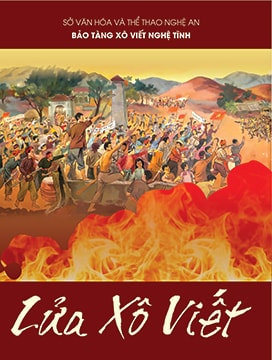
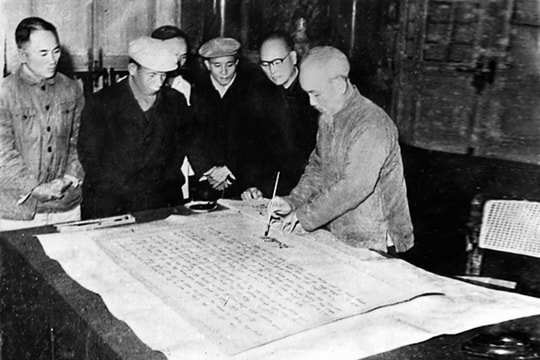
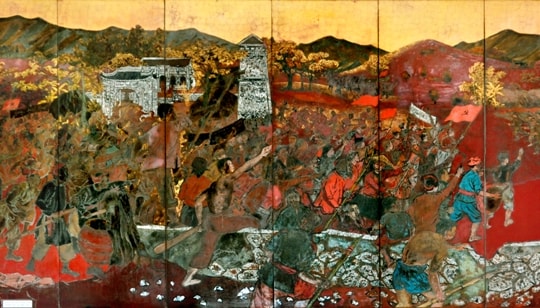
.jpg)

